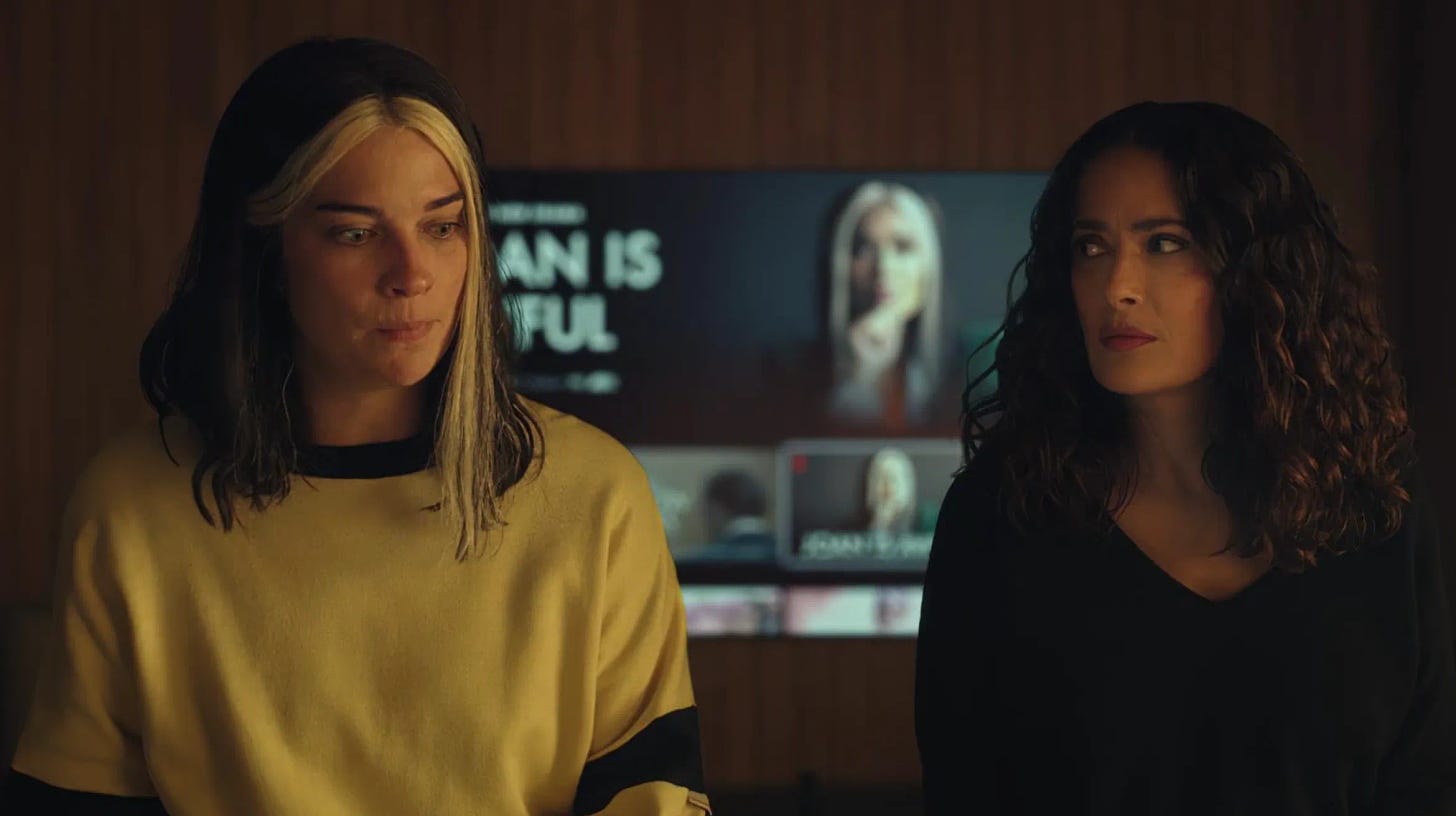AI High school Reunion
What we know about the current artificial intelligence yearbook trend, what we don't know, and what's in store for us all.
We’re back this week with an unplanned but important conversation. I mentioned we would discuss the latest influencer scamming scandal, but the more I’ve researched that specific case and others, the more I’ve realized that conversation will always be available. There’s a more pressing matter I think is worth discussing right now.
Oh! Before we jump in, I thought it would be cool to introduce you to some legal jargon. So this week’s word is actually a two-fer: Terms of Use and Privacy Policy. Not exactly jargon, but definitely legal documents. Terms of Use or T&Cs are typically agreements made between companies and the users that “enter” their sites. Privacy Policies dictate how that company/website will use any private information you give them (in most states, it is against the law not to have a PP on your site). You should know this because you should understand what you’re reading and why it’s there. Save this one in your back pocket.
Now, let’s dive in!
We’ve all seen our timelines flooded with AI-generated High School yearbook photos. Before that, we saw the trend where AI turned you into a superhero, a doctor, helped you shed 100 lbs, and even gave you fuller hair. We see people use AI to create amazing bios for their websites and emails for their newsletters. It’s a pretty attractive tool! The question here is, when it comes to AI, are we asking enough questions and thinking about the bigger picture?
I think it’s important to start with where the law is on all of this. Historically, the legal profession is always behind when it comes to adopting technological advancements like AI. If you want a quick “What in the world?” moment, check out this article from the New York Times about a lawyer who relied on Chat GPT for a case. The firestorm that followed also showed how freaked out lawyers and judges were about the new technology.
Keeping data privacy concerns, reliability, and veracity aside, you’ll find that most lawyers are hesitant and cautious about using technology. Sometimes, you’ll find that there are also lawyers who are a bit more antiquated and won’t use advanced technology at all. AI as a whole is developing very quickly, so we can understand the lack of progress, not just when it comes to the law but in many spaces. As of now, for example, the Copyright Office has said that works generated solely by AI, with no human component, cannot be given copyright protection (source).
What are the potential dangers of using AI apps?
Raise your hand if you read the terms and conditions for all of the apps you sign up for… I didn’t think so. Most of us don’t! The most notable thing here is that you don’t really know what you’re signing up for. When you use these apps/websites/platforms, you often provide general and sensitive information about yourself. Your name, images, and credit card information. Sensitive or not, it’s important to know what happens to your information after they’ve obtained it. Will they sell your image? How long will they keep it for? Who will have access to the information you provided? These are all questions we should ask before trying to see what we could have looked like in High School.
In an ideal world, apps using AI and customer data would be and should be complying with certain privacy laws. But because these apps are appearing so quickly, there isn’t much regulation here. Who is running their legal department? Do they have a legal department? How do we find these things out?
Yearbook Trend
In the recent yearbook trend I mentioned above, the company Epik, a South Korean AI-powered photo editing app, allows you to generate a series of images that show what you may have looked like in high school. After some searching, I found that their Terms and Conditions were translated directly from Korean. It doesn’t read the same way it normally would had it originally been written in English because, you know, they’re two different languages (shocker). Also, legal language can sometimes be vastly different from plain English, but I digress... Below are some examples:
FROM THE T&C
“The translation below is provided for your convenience only. If there is any discrepancy between the translation in English and the original Korean text (including due to the delay in translation), the original Korean text takes precedence; provided, however, that the language in these Terms relating to the provision of AI Services in the English version of the Terms shall take precedence over the Korean version of the Terms”
This tells me that they are not taking the language nuances seriously as a whole, and the only time they looped in English-speaking lawyers was for the AI portion of the text. We also see there are a bunch of typos. Overall, it’s not language that I would feel entirely comfortable agreeing to (aka using the services).
Here’s another example from their T&C:
You must not use or submit any photos that violate any of these Terms or to which you do not have all the necessary rights. You agree to indemnify, defend, and hold the Company and its affiliates harmless against any losses or claims arising out of or relating to your use of the photos in violation of these Terms.
This requires you to take accountability for the content you upload. So, here we have copyright issues galore. Remember when we talked about image rights (check out that post ICYMI)? If you submit an image that you don’t have the rights to, and you’re not sure what they do with these images in the first place, you can find yourself in serious copyright infringement trouble if you used these generated images in ways you didn’t have permission to.
We also see some “We will try our best” language. This is truly just insane. Trying your best is a throwaway phrase and has no legal backing. Imagine signing a contract for a new job that says, “We will try our best to pay you on time,” or “We will try our best to make sure we don’t give your information to a bunch of other companies but can’t make any promises.”
Epik’s privacy policy is also interesting. Let’s take a look at Section 4. I think by now, we all understand that most apps/sites sell our information for behavioral ads. If you’re someone who does not like to be tracked, targeted by specific ads, etc., this is important to know. Not all websites/companies do this. As an Apple user, I’m asked whether or not I want to be tracked every time I download a new app. This tells me this is something that can be avoided if it’s important to you. But avoiding that requires reading things like privacy policies. So this one is on you!
We’ll also look at Section 3. The last bullet point basically states that they can use your information “For any other legitimate interest or those of a third party.” I don’t like how broad the language is here. It leaves this open for many uses. None of which we are privy to. Section 5 shows that in the last twelve months, they’ve sold personally identifiable information like your name and postal address. Yes. I read this several times because I thought there was no way I was reading this correctly.
If you actually read the document, you’ll also find that unless you opt-out, they can keep your facial recognition information for up to three years. Three years! With how quickly AI is advancing, that is a lot of time to hold on to vital information like YOUR ENTIRE FACE. My point is that these terms are important to read. And if you’re freaking out because you’ve already used the app and submitted your information, you can re-read the T&C + Privacy Policy and see how you can opt out or reverse your participation. Deleting the app usually does not suffice, but you can always contact the company and see what your options are.
AI AND ENTREPRENEURS
I want to clarify that I LOVE AI. I love technology. No one nerds out over these topics more than me. I’m a huge believer in working smarter, not harder. So, the use of technology for businesses, particularly small businesses, who often need all of the help they can get, is incredibly appealing to me. I do believe that tools like AI are worth exploring. If not for usage, for knowledge, because no one wants to get left behind when it comes to this stuff.
I’m not the originator of this thought, but I read somewhere that it’s not believed AI will eventually become the replacement for humans. Rather, humans using AI will replace humans that aren’t using AI. I agree with this to an extent. However, my concern is that the current societal need to have everything quickly (think get-rich-quick schemes), paired with the idea that everyone should start a business because it’s super easy (cue LLC TikTok), could create an over-dependence on AI. So, instead of it being a tool you utilize on occasion, it becomes a tool used to bypass the real work it takes to successfully run a business by creating shortcuts or relieving you from learning the skills you need for overall maintenance.

Now, the idea here isn’t to be discouraging, but there are some realities we need to think about. AI is not foolproof. We’re still learning about it, and because of that, we see that there is room for many mistakes. We can see that specifically in the NYT article I mentioned at the top of this conversation. When it comes to AI, you can’t just “let go and let God.” You can utilize it as a tool, but you have to double and triple-check the work. When you think about it, it sounds like a lot more work than most entrepreneurs have time for.
I think the most important thing to consider here is that you don’t want to lose the human aspect of your business. People want to know that they are working with people, not bots. Believe it or not, as the usage of AI increases, we’re going to start being able to distinguish between things written or created by AI vs a human. This isn’t necessarily bad, but it’s something to think about as we enter this new age. The most authentic (I love/hate that word) voice that you can give your brand/business/idea is your own. Outsourcing this can create a muffled, overly familiar voice that doesn’t properly express what you’re trying to say.
Can AI write a manuscript? Sure it can! But is that something you want to put your name on? As of today, it won’t even be afforded copyright protection. Can AI draft a contract for you? I’m sure it can. But do you really want it out there “protecting” you before you’ve had a licensed attorney take a look? I think not.
It’s not all scary doom and gloom
There are so many ways to use AI in a responsible and effective way. Before doing so, here are some questions you should ask yourself:
Why? Why am I using this tool? Is it to make something more efficient? Is it to do something I’m not sure how to do and perhaps can’t afford to hire someone? If so, how will I check the work?
How? Am I leveraging this tool, or am I making myself obsolete? Either way, you should ensure that you understand the limitations and risks of using AI for this function. Think of the personal information you’re offering up or even the client data/information you share when using these tools. The more AI you implement, the more T&Cs/PPs you have to make sure you read and understand.
Is it ethical? Am I just copying and pasting what AI is generating for me? Am I putting something out there that has not one ounce of human ingenuity and passing it off as my own? Is this something I’m comfortable associating myself with? And lastly, can I accept all of the liability that comes with using this tool?
As technology advances and the demand for consumption surpasses what we are able to provide, we will see an increase in the use of AI. That’s just how we evolve as a society. Tech is introduced, we adapt, and we move forward. But we can also see how relying heavily on these tools can cause harm. We see it in the overuse of cell phones, social media, television, etc.
There’s no harm in participating in fun trends and getting AI to do things that may even help your home run more efficiently. But it’s important to know what we are getting into. What kind of information are we willingly giving up, and what are we losing by automating certain things? It could all be nothing. Or, one day, you can walk outside and see that there is someone who oddly looks a lot like you (unlikely, but just for fun).
If you have Netflix, I highly recommend this episode of Black Mirror. It’s called “Joan is Awful.” And if you’re going to use AI, I highly recommend you read the conditions you’re binding yourself to. It doesn’t hurt to protect yourself and your information. Plus, if there’s going to be another one of me walking around, I want a cut.
Whew! This was a long one, but I hope you found it informative. As always, don’t forget to comment, like, and share. Thanks for tuning in!
Pamela







Thank you